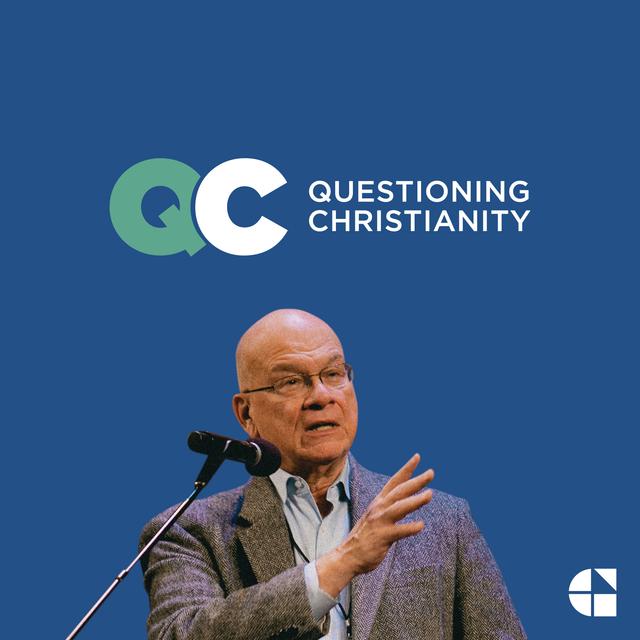Hopefulness Q&A
In this episode, Tim Keller responds to audience questions based on his “Hopefulness” talk. This Q&A session was recorded before a live audience on April 18, 2019 in New York City.

In this episode, Tim Keller responds to audience questions based on his “Hopefulness” talk. This Q&A session was recorded before a live audience on April 18, 2019 in New York City.
In this episode, Tim Keller explores questions around hope for the future. Can we live without hope? Can hope exist in the face of death and all the evil in the world? This final talk of the 2019 Questioning Christianity series was recorded before a live audience on April 18, 2019 in New York City.
In this episode, Tim Keller responds to audience questions based on his “Justice” talk. This Q&A session was recorded before a live audience on April 11, 2019 in New York City.
In this episode, Tim Keller explores questions around justice and human rights. What are human rights? Where did the idea come from? What are the problems secular society has with human rights? What can Christianity contribute? This talk was recorded before a live audience on April 11, 2019 in New York City.
In this episode, Tim Keller responds to audience questions based on his “Morality” talk. This Q&A session was recorded before a live audience on April 4, 2019 in New York City.
In this episode, Tim Keller explores questions around morality. What is the basis for moral judgements? Can there be moral absolutes? Aren’t right and wrong just common sense? This talk was recorded before a live audience on April 4, 2019 in New York City.
In this episode, Tim Keller responds to audience questions based on his “Identity” talk. This Q&A session was recorded before a live audience on March 28, 2019 in New York City.
In this episode, Tim Keller explores questions around identity: How do we form our sense of self and our sense of worth? Am I only as good as my latest achievement? This talk was recorded before a live audience on March 28, 2019 in New York City.
In this episode, Tim Keller responds to audience questions based on his “Satisfaction” talk. This Q&A session was recorded before a live audience on March 21, 2019 in New York City.
In this episode, Tim Keller explores questions around satisfaction and contentment: Should we search for happiness or satisfaction? Does God care about my happiness? This talk was recorded before a live audience on March 21, 2019 in New York City.
In this Q&A session following his "Meaning" talk, Tim Keller responds to audience questions about core Christian concepts. He discusses the true aims of a Christian life, distinct from pursuing mere happiness, and delves into the profound and difficult questions surrounding suffering, God's justice, and the origin of evil. Keller also addresses criticisms regarding the church's failures and the perception of Christian exclusivity, explaining how the Christian faith provides resources for understanding and navigating these complex issues, particularly through the significance of Christ's own suffering.
Tim Keller explores the human need for meaning, contrasting the traditional religious view (connecting to the divine) with the modern secular approach (creating subjective purpose). He argues that while secular meaning may work in easy times, it fails the "acid test" of suffering because it is grounded in the fragile material world. Keller concludes by highlighting Christianity's unique resources—including a weeping, angry, risen, and dying Savior—that equip believers to face suffering with resilience and hope.
In this Q&A session, Tim Keller addresses challenging questions about Christian faith and proof. He tackles personal doubts, the problem of suffering, the reliability of the Bible, and the interplay between faith, reason, and background beliefs. Keller also discusses the Christian understanding of love in contrast to secular views and explains the significance of belief in Jesus and the certainty of the resurrection.
Tim Keller explores the complex relationship between faith and reason, questioning how people decide what to believe. He challenges the common view that secularism is purely rational while religion is based solely on faith, arguing instead that secularism involves its own set of unprovable beliefs. The episode suggests that both religious and secular worldviews require justification and proposes comparing belief systems as a way forward.
On May 3rd, Gospel in Life will begin a new seven-part podcast series — Questioning Christianity with Tim Keller — for people who are interested in exploring Christianity. This series will help listeners work through tough questions like: Can there be moral absolutes? Does life have meaning beyond what I make of it? Can hope exist in the face of death? Each of the talks and Q&A sessions were given by Tim Keller in 2019 before a live gathering in New York City, made up primarily of attendees ...